Early last year, the roofing industry “elite” – high-level CEOs and other C-suite executives from the top manufacturers, distribution networks and critical suppliers across all sectors of the business – joined together for an exclusive, invite-only event to start out the 2022 International Roofing Expo in New Orleans.
It’s not uncommon for roofing’s top leaders to occupy the same space during the industry’s biggest trade show, but this event was not for a charitable cause or about pushing any broad agenda to move the industry forward. The leaders of some of the best independent roofing supply distribution companies in the country, now known as the Independent Distributor Alliance Corporation (IDAC), had something to say. And their presence — as well as their estimated $9 billion in sales revenue — demanded that everyone in the room be there and pay attention.
Though not officially public yet, American Wholesale and Building Suppliers Corporation, both strong networks with more than two dozen independent building materials suppliers, and decades of service between them, were merging. Amid significant changes happening industry-wide and continued pressure generated by the growth of multiple mega-chain competitors, the timing was right. It was up to the new organization’s leaders, Doug DeWalt and Curt Gomes, to explain why, and they weren’t done convincing everyone it was the right move yet.
“We laid out conceptually what we were trying to do, but there were still more questions than answers at that point,” said Gomes, president and CEO of Pacific Coast Supply. “We have a very clear idea of what we need to do as independents in order to compete.”
Removed from the hubbub of the showroom floor and the draw of Bourbon Street, there was still a celebratory mood circulating among the crowd. These executives schmoozed and caught up with leaders from some the best independent distribution companies in the country. Hours earlier, membership from both groups had their first meeting as a new organization. Gomes, DeWalt and other members of a joint-steering committee rolled out the scope of their plan, legal needs, and how they planned to organize operations.
Both admit nervous energy filled the room around whether it would all come together, but said after about 10 minutes of discussion, it was like the organizations had been together for 10 years.
“Everybody realized we’re fighting the same challenges,” said Gomes, adding there was already respect between the companies across the two groups. “The most telling thing was that we had everyone — all 32— come over with us to the new group and formed a new corporation. We didn’t really know for sure.”
Together, Independently
Building Suppliers Corporation and American Wholesale each launched in the early 1980s on the premise of collaborative education, sharing best practices and improving vendor relationships. Both were family businesses determined to maintain their independence while still competing with large national supply companies emerging at the time.
“They knew that had to share best practices and educate their employees to stay competitive with these national companies that were starting to evolve, get bigger and cover multiple markets,” DeWalt said.
To start, both organizations were careful about competition between members and chose companies from different regions to begin pooling resources. Both organizations grew along with the industry and had considered merging, but the timing wasn’t right. As consolidation among building suppliers increased over the past five years, those discussions resurfaced.
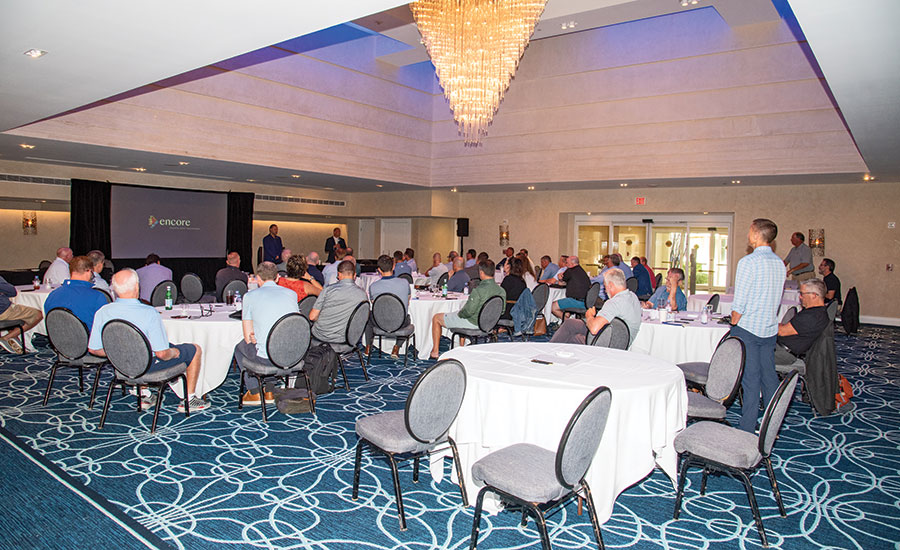
Prior to the COVID-19 pandemic, American Wholesale members already had serious internal discussions about joining forces. DeWalt said his membership had not, which prolonged their discussions until they could meet in person once safety concerns eased. The process didn’t really pick up steam again until late 2021, making the IRE event in New Orleans crucial.
“We knew we had similar platforms and discussions started about whether or not it made sense to put these two groups together,” DeWalt said.
To further complicate matters, each organization lost multiple companies to consolidation by larger national chains as the industry emerged from the pandemic. A steering committee comprised of three board members from each company began working on the legal process and exploring the most beneficial path to restructuring.
On New Year’s Eve, both groups announced their plans to the industry, and IDAC began full operations by April 2022. Independents found the new corporation attractive, as did larger suppliers with their own acquisition strategies in the independent marketplace.
Dallas-based DW Distribution started in 1955, and with roofing as a core product category, grew into a thriving, independent, family-owned business spanning three generations. Company leaders said they recently sold to Atlanta-based Specialty Building Products to increase the company’s size, scale and impact.
“We chose a partner who was committed to keeping our ‘independence,’ innovation, resourcefulness, and customer-focus at the forefront of what we do and how we do it,” said President Aaron Elliott. “I believe what we have found is that ‘independence’ is not created based on the company ownership structure.
“Today, IDAC has members that are family-owned and family-led, family-owned and management-led, private equity-owned, and some considering going public,” Elliott said. “While certainly that structure does have an impact on the company, the spirit of being ‘independent’ or ‘entrepreneurial’ is created in the culture of the company and how we behave.”
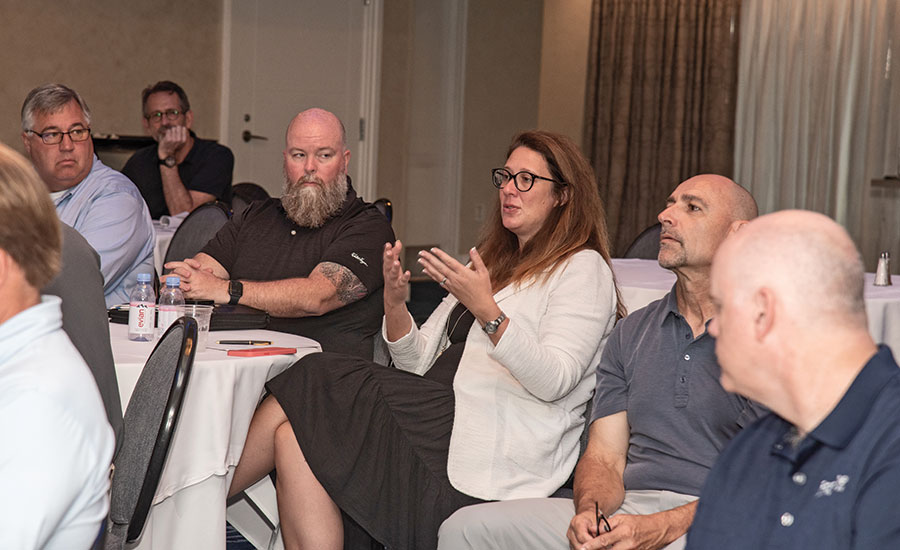
Inevitable growing pains aside, the overall process is working. Members plan to meet again at IRE 2023.
“The biggest surprise to most of our members was how seamless this has really been and how much each of us has in common,” DeWalt said. “Running a business can be lonely and we’ve found that the best practice sharing and the relationships that are built within our group meetings are priceless.”
The benefits are already becoming clear, and in unexpected ways, according to some members.
“IDAC provides [us] with a trusted network of friends across the country,” said John Reese, of Indianapolis-based Reese Wholesale. “The national footprint allows us to learn about new products and market trends nationwide, often long before they become accepted in Indiana. The glue that holds IDAC together is our willingness to share best practices with our fellow members.”
Entrepreneurial Fire
Another undeniable commonality shared by the companies is the entrepreneurial spirit with which they were founded and remains integral to their business models. Many share similar background stories of being born into — or joining — long-standing family businesses. While not start-ups, others that are newer in the marketplace set out on their own with a firm belief they could improve the distribution process or add something unique to offer the industry.
“I think the IDAC [members’] passion for the business comes from stories that are very similar to mine,” said Greg Schierbeek, president/CEO of Michigan-based Eikenhout Inc.
He joined the company after his father — who was hired in 1959 by a new ownership group — and leads it four decades later.
“We are people that have grown up in the business,” he said. “Many of us are second-, third-, or fourth-generation in family, or closely owned and operated companies. Most of us know what it’s like to be the first one there in the morning and the last one to leave.”
That deep commitment and prideful passion for the companies and traditions they represent isn’t lost on their manufacturing partners.
“America is built by entrepreneurs, and what I admire about the IDAC members is that they represent the core of our country all having started their own businesses … as entrepreneurs building what today are known as premier independent distributors across North America,” said Carmen Bodden, vice president and general manager of CertainTeed.
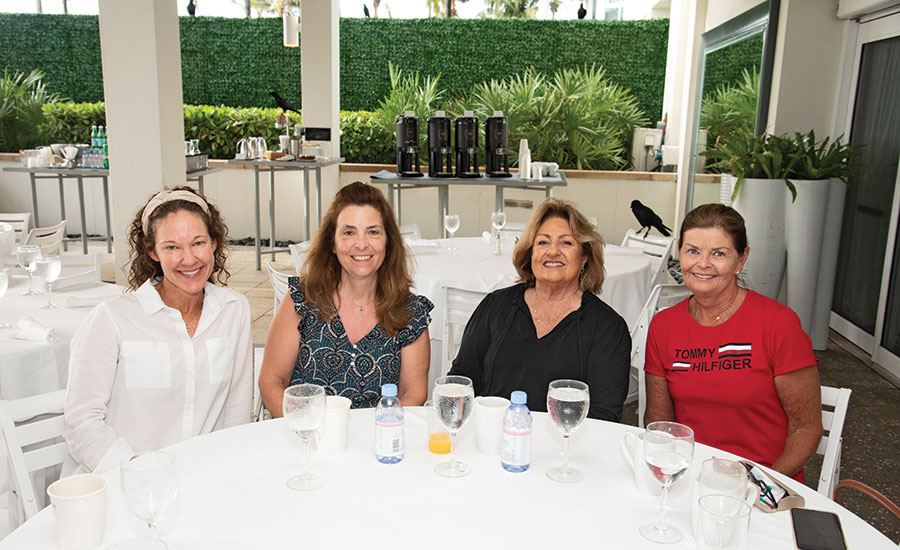
She and others also appreciate the commitment to continued education for employees and contractors they serve.
“IDAC is also an education-based organization [that] is committed to a culture of continuous improvement by consistently striving to make their members even more effective in an increasingly competitive landscape,” Bodden said.
Pacific Coast Supply’s Gomes said the approach is getting the attention of manufacturers that see the benefit independent distributors can offer in the marketplace. Comprised of individual business owners, IDAC members are close to the contractors they serve and are quite familiar with how they operate their roofing enterprises. That closeness offers manufacturers a direct connection to contractors which otherwise might take years to develop, if at all.
It also puts suppliers in direct contact with decision-makers in the distribution chain. That feature became vitally important during the pandemic and in the slowed economic recovery since, owners said.
“These owners are close to their customers and their suppliers, and the benefit of this group is that a manufacturer can get in front of us and talk to 32 companies that represent $9 billion in sales at the same time,” Gomes said.
Their ability to be flexible appeals to larger vendor partners as well. It sets their companies apart in most of the roofing supply’s competitive markets.
“The spirit of the entrepreneurial independent means we are flexible while the decision-making process is swift,” said Kris Steele, owner and CEO of New Castle Building Products, headquartered in White Plains, N.Y. “At New Castle, we don’t operate as a large corporate entity; I empower our employees at all levels of the business to make critical decisions.”
Feeding the Future
The continued flexibility and expansion within their ranks are part of the long-term strategy to become the preeminent roofing supply cooperative in the country. Many customers currently doing business with different IDAC locations across the network do so primarily because they trust independent distribution.
“Contractors have unique needs and the independent distributors do a really nice job adapting to that and providing what’s needed in their local market,” said Gunner Smith, president of roofing with Owens Corning.
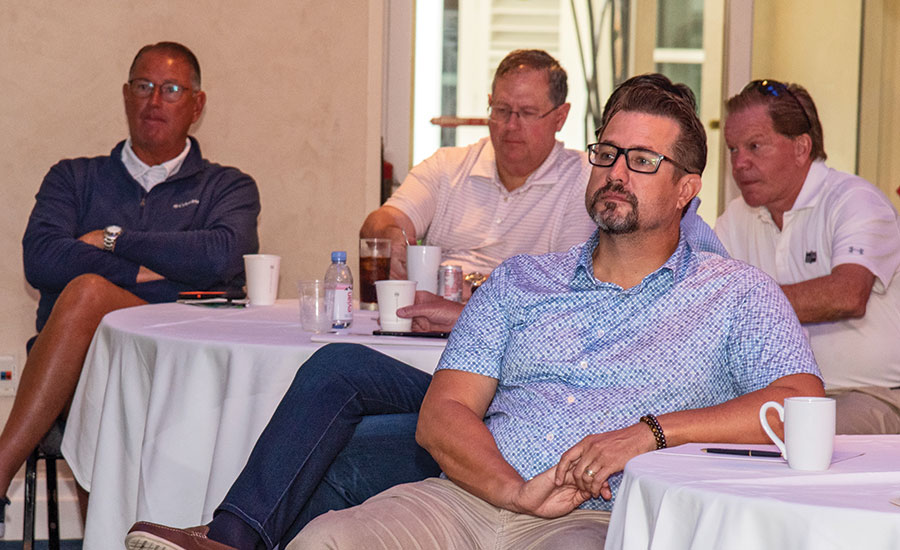
“The variety for contractors is really helpful to them, because they can find distributors with the product that they need and we certainly want to participate in that.”
Smith likened the goal of servicing distributors and contractors simultaneously to a three-legged stool.
“It takes a manufacturer, a distributor and a contractor to make the partnership work. And independent distributors in 2021 and through 2022 have really worked closed with us to meet the needs of the contractors,” he said.
Those needs included training on new products and, in some cases, replacement products that helped roofers complete jobs. Innovation isn’t new among independent distributors — Reese Wholesale was the first distributor in Indiana to sell laminate shingles, vinyl siding and fiberglass shingles. The company also revolutionized the use of flashing tapes in construction and co-invented a new underlayment that accelerated the use of synthetic underlayments nationwide.
“The independent distributors who make up IDAC will continue to be the innovators of the industry. We will be the first to market with new products,” Reese said. “We have taught thousands of contractors how to safely and properly install roofing materials.”
In addition to the roofing industry’s overall workforce shortage, the challenges for independent distributors are prominent. Prices remain high, swelling interest rates will continue to slow new construction, and inventory levels are uncertain. Meanwhile, the larger distribution chains show no signs of slowing down their rapid growth – adding roughly 50 locations since early 2022.
As IDAC continues to focus on education, sharing best practices, and developing member companies, organizers said more independents should join the ranks in the planned expansion.
“Our phone is ringing from distributors who would like to be a part of our group as well as manufacturers that want to support us,” DeWalt said. “We are also engaged in conversations with potential members that want to be a part of what we are doing because they are seeing and hearing about the benefits of being part of this group.”
Despite the external pressures from consolidation over the past five to seven years in roofing, now’s not such a bad time to be an independent according to some industry veterans.
“They have some very strong holds in the markets where they are at, and the relationship we’ve built with them over the years is a personal relationship that’s with multiple facets of the company. And that’s a very important part of our business,” said Brian Kimber, executive vice president of sales with GAF.
With the roofing business built largely on personal relationships and contractor loyalty that doesn’t change readily, the window is open for an independent contractor in certain markets, he added.
“I see a strong future for them, I really do,” Kimber said. “Roofing is a local market business for sure and the longevity of an independent distributor is important to the customers they serve locally, so it’s really hard to knock them out of the box.”
The key, many believe, will be training. As manufacturers continue to put major resources into making roofing products easier to handle and install, they’re also improving their commitment to ensure roofers are more proficient on the jobsite. By having a taste for the local marketplace, the native, independent distributor can play an increasing role in a market’s development.
The industry is evolving and is attracting new contractors that are not always successful right away. Independents believe they have the ability to improve that success rate.
The beneficial learning is also a two-way street, Smith added.
“We really enjoy the opportunity to get together with owners and executives that are talented,” he said. “It’s a very different group of leaders, and we’ve learned a lot from that because of the exposure to a wide range of owners and diversity of thought. The merging [to IDAC] made that time with them more impactful.”
Many IDAC member companies hear the call loud and clear, and are also stepping up their contractor engagement individually. They are offering their own training and working with contractors on improving business principles like marketing strategies, financing tools and incorporating technology for efficiency.
“We see a next generation of roofers coming into the business or taking over legacy companies and are passionate about helping them build their business acumen so they can thrive,” Gomes said.

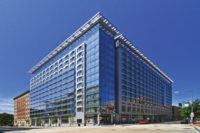
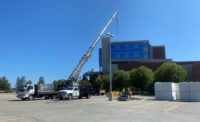
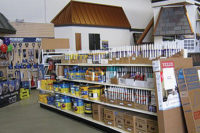

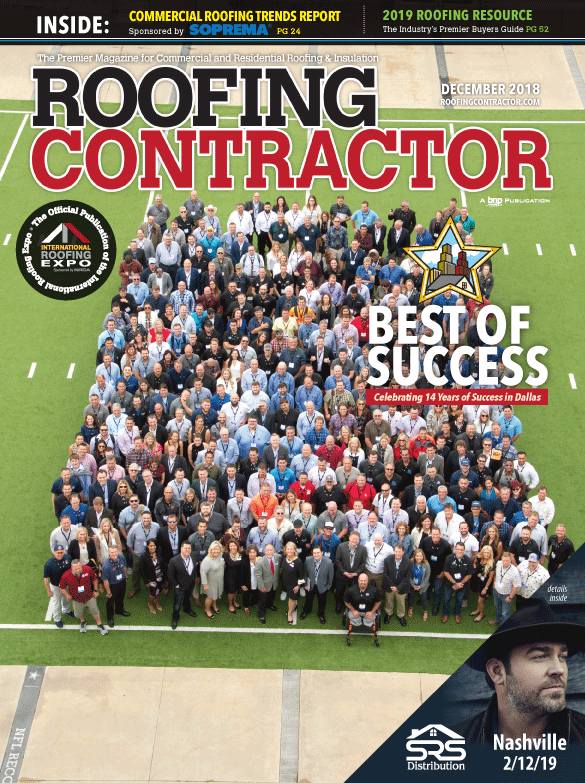

Report Abusive Comment